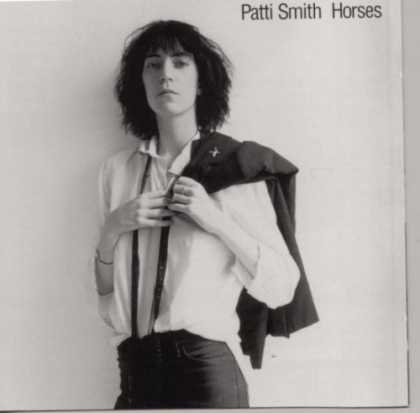 Every year our class participates in an Eminent Person Study to fulfill components of English and Socials curriculum. As well, the project’s culmination in the Night of the Notables, where our grade ten students (the class is almost evenly divided between grade nine & ten gifted students who attend our school from all over the district) become their studied people and answer questions in a 30 minute wine-and-cheese style banquet, and then deliver brief addresses – remaining in character – on any aspect of their eminence or life for peers and parents, as well as friends, teachers, administrators and the odd school board trustee.
Every year our class participates in an Eminent Person Study to fulfill components of English and Socials curriculum. As well, the project’s culmination in the Night of the Notables, where our grade ten students (the class is almost evenly divided between grade nine & ten gifted students who attend our school from all over the district) become their studied people and answer questions in a 30 minute wine-and-cheese style banquet, and then deliver brief addresses – remaining in character – on any aspect of their eminence or life for peers and parents, as well as friends, teachers, administrators and the odd school board trustee.
Needless to say it is a big night, and one of the rites of passage in our two-year program (along with the class’ Fall Retreat, In-Depth Study and Adventure Trip) that calls upon our students to truly explore their potential in the face of hesitation, fear or momentary lapses in confidence. As with these other keystone hallmarks of the program, the Night of the Notables dates back to the original incarnation of gifted education in our district – a locally developed curriculum I was lucky enough to be a part of in 1994-1996 – and the resources handed down to our classroom: yellowed pages of brimming binders, contain programs for the evening dating back to the early 1980’s.
 In my own participation in the project, I remember my own teacher going into detail as to the importance of the young women in our class studying eminent females, citing the lack of Herstory (a term I was hearing for the first time at fourteen) in our classrooms and media and a handout I photocopied yesterday.
In my own participation in the project, I remember my own teacher going into detail as to the importance of the young women in our class studying eminent females, citing the lack of Herstory (a term I was hearing for the first time at fourteen) in our classrooms and media and a handout I photocopied yesterday.
But since I have been teaching the program – the last three years – I have noticed an increasing fervour around the notion of females wishing to study men. Though a certain amount of this has much to do with the gulf of understanding that exists between any adult and teenager (where each believes they are acting reasonably and rationally, and yet comes across to the other as someone born quite literally yesterday, without prior experience in human interaction), I marvel at the energy with which their opposition to studying eminence along gender lines grows.
This year there are four students (out of 28) wishing to study eminent people of the opposite sex; three females wishing to study men, and a young man wanting to study a female. In my estimation it is the highest number yet.
Knowing that a good many female students historically faced with the prospect of studying a historical person will (reflexively?) select a male is a matter of historical authorship than a lack of female accomplishment, I generally approach such ambitions by proposing that the student make a case for the person in question as the best available choice.
Criteria arrises out of many things: chiefly, the potential to teach the student about the world, the nature of giftedness, and achievement based on one’s own individual measurement of success. Even in other cases – if I feel a student’s choice is arbitrary, or hastily made – I follow a similar line of questioning. But gender, as an identifying characteristic and means by which our society continues to intrinsically marginalize women, remains a major factor in the selection process. The research on this is extensive, and it is astounding on many levels that nearly every female in my class (with any prediliction for debate) so vehemently opposez the recognition of different cultural expectations for women.
It could be a matter of age, my teaching partner and I agree. As does The Happy Feminist, who blogs:
Back when I was an adolescent, I militated against the idea that the lack of female role models in certain disciplines is a problem for young girls. I felt vaguely insulted at the notion that I was expected to identify only with people of the same sex as I. At thirteen, when I had to write an essay about my role models, I made a point of including Leonardo da Vinci as well as Elizabeth I. I felt that there was no reason I shouldn’t be just as inspired by or identify just as strongly with a man of achievement as a woman of achievement.
And so inevitably I am “pitched” female studies of the likes of Walt Disney, Marilyn Manson or Charles Darwin, and have yet to rule against the students’ final decisions, one way or the other. Merely, I make a practice of asking the students wishing to cross the gender line demonstrate passion for their choice in writing or conversation, a description of one of the following:
-
A list of five people of the student’s gender who could be considered members of the same field as the original selection, and why they are unacceptable for study.
I tell them to enter such discussions knowing that I will be supporting the women on their lists because I believe it is important for them to have strong female role models. And yet a group of a dozen or so (most of whom have no vested interest in the cause as they are studying members of their own sex, but who – as do nearly all of my gifted wonders – rabidly devour any and all topics of debate and argument at all times) hang around until four debating the motivations and underpinnings of my seemingly Draconian and arbitrary regulation.
But it is not all so bad. I tell them that in the end the choice is theirs; I only want them to make their decision with consideration of as much surrounding information as they can, and to make the one true to themselves. Sometimes it even works out.
Resources for Seeking (Female) Eminence
Women’s International Centre | Biography Index – Women’s International Center [WIC] was founded in 1982 as a non-profit education and service foundation [501c3] with the mission to ‘acknowledge, honor, encourage and educate women’. Since its inception WIC has fulfilled its purpose in many ways. Beginning in 1983 the LIVING LEGACY AWARDS began to ACKNOWLEDGE, HONOR and ENCOURAGE WOMEN.
Canadian Mathematical Society | Women’s Biographies – Many biographies of women mathematicians may be found at the extensive History of Mathematics collection, at St Andrews University, Scotland. Others (many modern) are listed at the Women Mathematicians Project, at Agnes Scott College, U.S.A. 4000 Years of Women in Science lists several women mathematicians (with photos). A few biographies of women mathematicians have been published in mathNEWS, the University of Waterloo Faculty of Mathematics student newspaper. A text called Math Odyssey 2000 by Clem Falbo for a liberal arts course provides a few others. For a print listing, see Biographies of Women Mathematical Scientists and History of Women in Mathematical Sciences from the Women in Math Project (directed by Marie Vitulli). Another list: Distinguished Women of Past and Present: Mathematics, a collection by Danuta Bois.
The Collective Biographies of Women – This is an exhaustive annotated bibliography of the more than 930 books published in English (in Britain, the United States, and elsewhere in the Anglophone world) between 1830 and 1940 that collect three or more women’s biographies. Two selective chronological bibliographies feature all-female collective biographies published before 1830 and after 1940 (the list is exhaustive through 1950). These books, written by more men than women, feature a surprising range of historical, legendary, literary, or biblical subjects, of many ages and lands and many kinds of achievement.
Know of any resources that would be of further use to this discussion? Add the tag eminentperson to any Delicious bookmarks to share!
I read this post a couple of weeks ago and I’ve been nursing it for a while.
First of all, I think your invitation for students to evaluate and ponder their eminent persons choice is a noble one. The conversations you have engendered, and not the final projects themselves, may very well be the prized fruit of this exercise. To challenge students to think about choice and the process of choosing is one of those elusive intangibles of sound teaching.
As a women and a mother of two daughters, I am particularly aware of the necessity of herstory. However, I do wonder whether “studying eminence along gender lines” may not, ironicaly, perpetuate the “means by which our society continues to intrinsically marginalize women.”
As you so clearly articulate, your student’s predilection to study men is a matter of reflex and “historical authorship [rather] than a lack of female accomplishment.
For me, of greater concern is not so much those female students who have chosen to study men so much as the disproportion representation of female eminence amongst both the males and females in the class.
A eminent female is eminent not because of her gender but because of her influence and impact in her field. Her worth rises above gender lines. Your invitation for students to question why male eminence is the default reflex is a brilliant and worthy challenge for both male and female students alike.
Hmmm…lots to think about…I understand why this topic would have fueled such ardent debate!
Thanks Bryan for this thoughtful post.